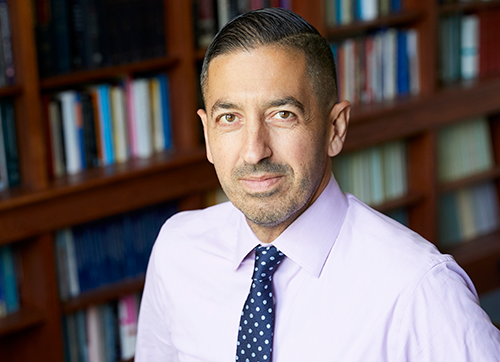Reckoning with the End of Roe.

Reckoning with the End of Roe
It is now up to us to engage and to redouble our efforts towards supporting the laws and policies that create a healthier world.
Today, the Supreme Court issued its decision to overturn Roe v. Wade and end constitutionally protected abortion access in the US. This reflects a major shift on this issue, as choices about the legality and accessibility of abortion now fall to the states. The implications of this change are catastrophic. For the first time in decades, abortion access will not be protected in a majority of states.
In May, when a draft of the Court’s opinion leaked, I wrote about the need to center reproductive health and abortion access in the public health agenda. In early June, we came together as a school community to discuss abortion access and the future of reproductive health in the US, in the context of the decision we knew was likely coming. We now face the reality of a changed world. It is important to restate that abortion care is health care, and lack of federally protected abortion access has deep, intolerable, and unjust ramifications for health. The task of public health is to address this new reality in pursuit of our broader mission to improve the health of populations with special care for the marginalized and vulnerable.
It is the marginalized and vulnerable that this decision will disproportionately affect. Choices about abortion are deeply shaped by socioeconomic circumstances. Black women, for example, are nearly five times likelier to seek an abortion than their white counterparts. And nearly 50 percent of abortions are performed on women living below the federal poverty line. In a post-Roe world, the health of these populations should, as ever, be at the center of our collective concern.
Today’s decision is also a reminder of how issues of consequence for health that seem settled can be subject to change. While abortion has always been a contested issue, the status quo had been intact for so long that today’s decision feels like the shattering of an era. It is important to remember that what we define as progress can always be rolled back, that preserving a healthier status quo takes constant vigilance and engagement.
This reflects the importance of working to protect the hard-won rights that support the dignity and health of populations—such as the right of LGBTQ+ populations to marry and to live with dignity, free of discrimination. The future of abortion access in this country is now uncertain. What is clear, however, are the stakes of our engagement with the political process that shapes abortion access and so much more. Now, more than ever, is a time for working to create the political change that helps advance a healthier world. This is particularly true in the context of the upcoming midterm elections, in which abortion, LGBTQ+ rights, and other key issues should be at the heart of the public debate. We need to create durable majorities that work within the political process to build a strong legislative foundation for health.
It is now up to us to engage and to redouble our efforts towards supporting the laws and policies that create a healthier world. Thank you for doing just that, particularly during these dark times.
Warm regards,
Sandro
Sandro Galea, MD, DrPH
Dean and Robert A. Knox Professor
Boston University School of Public Health
Twitter: @sandrogalea
Previous Dean’s Notes are archived at: http://www.bu.edu/sph/tag/deans-note/
